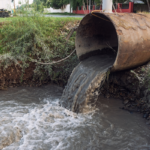Sea levels are rising right before our eyes. Literally. Consider the floods from king tides in Fort Lauderdale (occurring without even a drop of rain) and the hundreds of millions spent to elevate roads in Miami Beach.
Climate change is making its mark on Florida as each year passes. For both current property owners and future buyers, the housing market as Floridians know it is slowly changing.
Rising sea levels have impacted coastal property sales and will continue to do so if climate change continues at its current pace. Citing housing market data, a recent article in the New York Times reported that across the nation home sales increased by 2.6 percent in 2016 but decreased by 7.6 percent in high-risk flood zones in Miami-Dade County. More than 12% of Florida’s homes could be below sea level in 80 years, according to NOAA (the National Oceanic and Atmospheric Administration).
So how are existing property owners responding? Some property owners may be keeping their eye on the meteorological news and deciding to sell their property sooner rather than later. Buyers are still buying, knowing that “eventually” the property may be underwater. Insurers are still insuring, and mortgages are still being approved. But economists at Freddie Mac predict an irreversible, unrecoverable housing crisis for coastal homes nationwide. The question is: When?
Builders and construction firms are addressing rising sea level concerns with climate-change protections. Bulkheads and sea walls are being built, more houses are going up on stilts, and generators are being installed. But some question safeguarding coastal homes when nearby roads have not been improved with backflow drains or elevated surfaces.
The dream of owning a beach home hasn’t died, so those considering purchasing a coastal home should be as well-prepared as possible:
- Use a Realtor that discloses flood history and data.
- Understand the local building codes related to climate change and how those codes may be changing in the future (this will let you know what renovations may be needed).
- Get educated on flood insurance. It’s complex. Here is a place to start.
- Request a report of past insurance claims made by the current homeowner.
- Study the market and see what the trends are.
Here at Distinguished, we’ll be keeping our eye on issues that affect our clients not only on the Florida coast, but along all fronts of our country.




